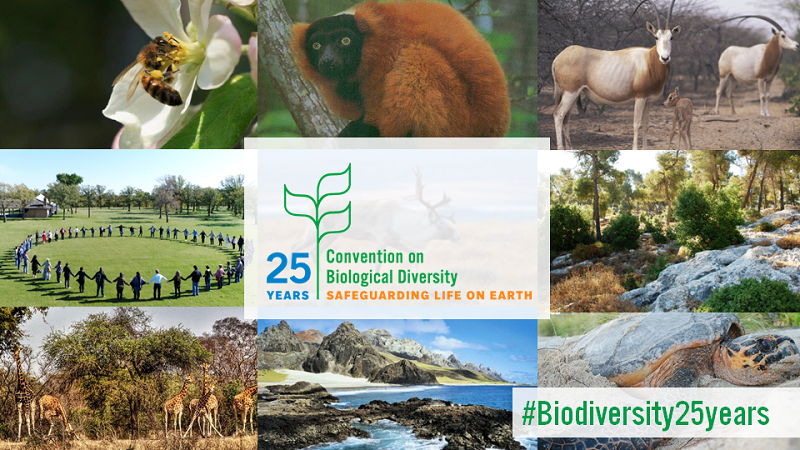OECS Commission observes International Day of Biological Diversity
OECS Media Release
This year’s theme in observance of International Day for Biological Diversity is “Celebrating 25 Years of Action for Biodiversity". This theme was chosen by the Secretariat to the Convention of Biological Diversity (CBD) to mark the 25th anniversary of the entry into force of the CBD and to showcase the progress that has been made in achieving its objectives at the national and global levels.
Biological diversity commonly known as biodiversity refers to the variety of life on earth and the web of life it forms, of which we are an integral part and on which we fully depend. The biodiversity that exists today, is as a result of years of natural processes and increasingly today, as a result of the influence of human beings. There are 3 levels of biodiversity:
-
Genetic diversity – the variation in genetic information between species and between individuals of the same species;
-
Species diversity – the variety of species on earth referring to both the number of species and the number of individuals within species;
-
Ecosystem diversity – the variety of habitats, natural communities and ecological processes within an area.
Protecting biodiversity is critical and should therefore be important to us as products from nature support industries such as agriculture, cosmetics, pharmaceuticals, pulp and paper, horticulture, construction and waste treatment. Biological resources and ecosystems also serve to reduce our vulnerability to natural hazards. Coral reefs and mangroves for example, help to break wave action and protect coastal communities. Biodiversity loss will therefore threaten our food supplies, recreation and tourism opportunities, livelihoods, sources of wood, medicines, energy, coastal infrastructure and interfere with essential ecological functions.
The CBD Secretariat continues to push for reducing biodiversity loss, promoting sustainable use, conservation and the fair and equitable sharing of the benefits arising out of the utilization of genetic resources, all towards sustaining life on earth. It is therefore fitting to highlight over the last 25 years, the work that has been undertaken in that regard.
All 6 independent OECS Member States are Party to the Convention on Biological Diversity. At the regional level, over the last 25 years, the Organisation of Eastern Caribbean States has assisted these Member States in undertaking several initiatives that contribute to the objectives of the convention. Principle 13 of the St. George’s Declaration of Principles for Environmental Sustainability in the OECS is focused on protecting and conserving biological diversity. Additionally, the OECS has developed a Biodiversity Conservation and Sustainable Use Bill, a Policy on Protected Areas Systems and accompanying Model Protected Areas Systems Act, has undertaken the USAID funded ‘Protecting the Eastern Caribbean Region’s Biodiversity (PERB)’ Project, the ‘OECS Protected Areas and Associated Livelihoods (OPAAL)’ Projects, developed an OECS Invasive Alien Species (IAS) Action Plan, provided in-kind support to the GEF-UNEP-IUCN ‘Advancing the Nagoya Protocol in Countries of the Caribbean Region’ Project and now has a programme area on Biodiversity and Ecosystems Management.
The OECS Commission therefore commends the work of the CBD over the last 25 years in assisting the Member States in implementing the Strategic Plan for Biodiversity (2011 – 2020) and its Aichi Targets. The Commission also commends Member States on their efforts to develop and implement their National Biodiversity Strategies and Action Plans and continues to support them to ensure that the critical biodiversity of the OECS Region is effectively managed, conserved, sustainably used and contributes to economic and social development.
Source: https://www.cbd.int/idb/2018/



